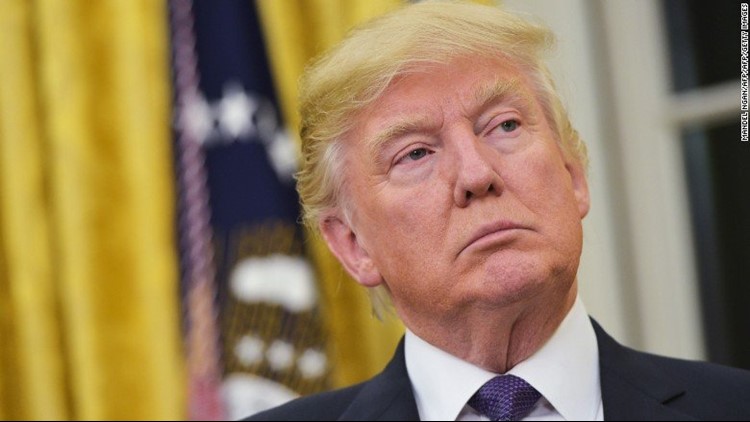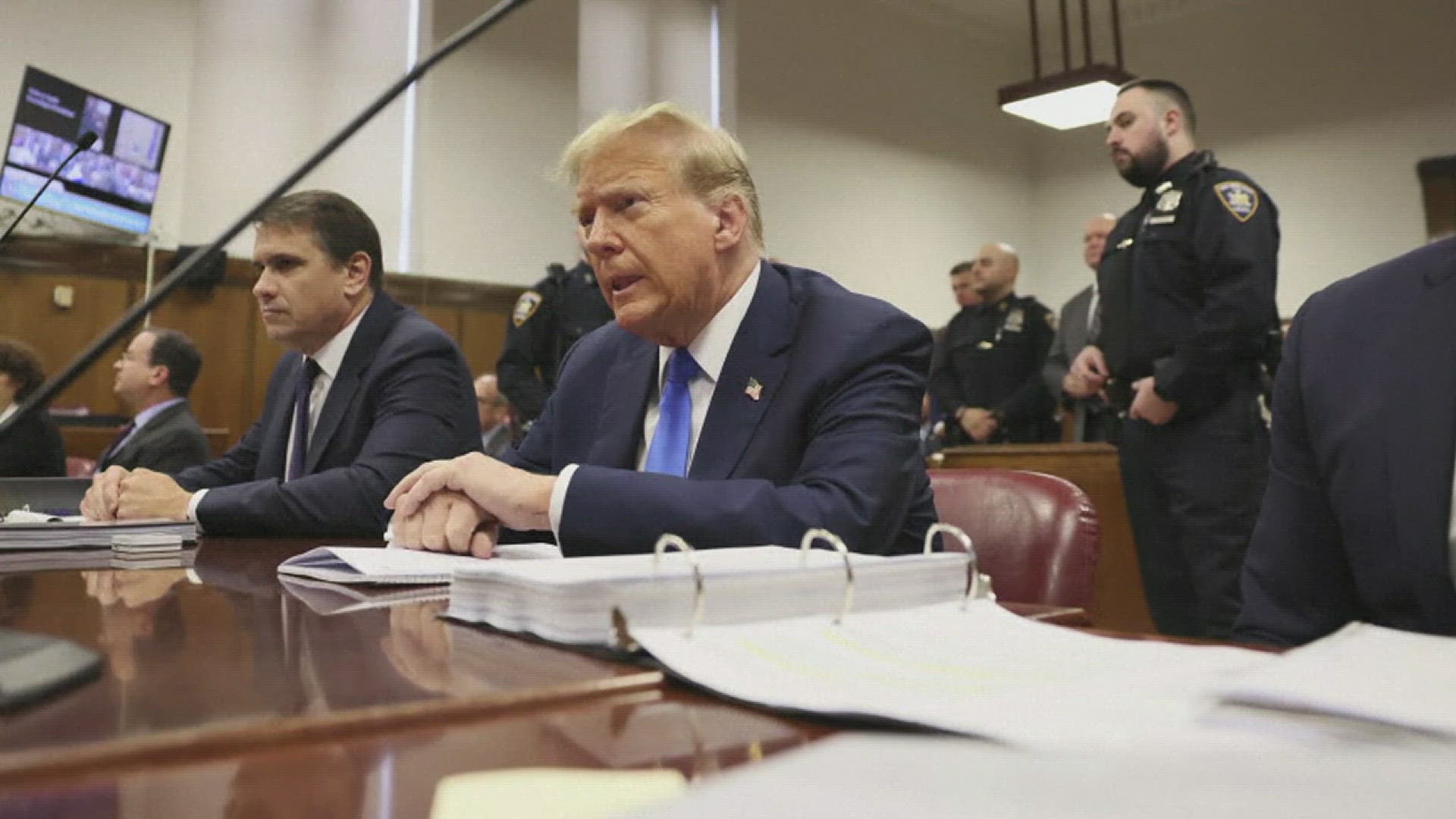WASHINGTON (CNN) — A fateful day is looming Tuesday for Republican efforts to jam an Obamacare repeal bill through the House, with party leaders desperate to offload the problematic legislation to the Senate and the White House frantically seeking a major win for President Donald Trump.
GOP leaders will consult rank-and-file lawmakers on the state of the revised bill at a conference meeting on Tuesday morning, believing they have momentum toward piecing together a majority of 216 votes to pass the bill by the narrowest of margins.
But on Monday, a stream of moderate members came out against the bill, putting its prospects in serious doubt and leaving little room for further defections. By early Tuesday, CNN’s whip count suggested that 21 Republican lawmakers had said they would vote against the new iteration of the bill — a compromise between some conservatives and moderates.
House Speaker Paul Ryan can only afford to lose 22 votes from the Republican side and still pass the bill.
That means if only two more members come out as “No” votes, there is no majority to pass the bill and more humiliation will loom for the speaker and the Trump White House — which already was lobbying for a vote before the the President’s 100th day in office last Saturday.
The White House is piling pressure on House leaders for a vote, and Trump made several interventions, but it was unclear whether his assurances reflected in-depth knowledge of what the American Health Care Act contains, and whether he was helping or hindering the push to pass it.
Vice President Mike Pence spent several hours consulting Republican members Monday and will be back on Capitol Hill Tuesday. Asked whether the bill would go to the floor, he told reporters: “Stay tuned.” But as of Tuesday morning, no vote has yet been scheduled. A first attempt at passing the repeal bill failed in late March after Ryan pulled it from the floor rather than lose an embarrassing roll call vote.
If the trend continues, Ryan could face yet another tough political decision and hopes of voting on the bill would fizzle, a move that could leave Republicans facing a backlash from their base when they return home for next week’s recess following years of promises from the GOP to repeal and replace Obamacare.
There remain about 18 undecided Republican lawmakers, including several on the GOP House whip team, reflecting the manner in which the bill put party moderates at odds with conservatives. Some of their number could be leaning yes, but are waiting until the last minute to enjoy as much political cover as possible or to extract concessions from the White House or the House leadership.
As they walked out of a whip meeting Monday, members swore they had no idea what the current vote tally was.
“I have no idea. I’m just a lone ‘yes’ voter doing my thing,” said Rep. Jackie Walorski, R-Indiana.
Rep. Mike Kelly, R-Pennsylvania, said where things stand will become clearer at the conference meeting Tuesday at 9 a.m.
Trump’s comments not helping
The incessant flow of commentary from the White House is raising questions not just about how useful the administration’s role is in pushing the bill but about also whether Trump actually knows what is in it.
The President has put his finger on the scale on the issue of pre-existing conditions, a vital sticking point for moderate Republicans who are yet to sign up for the measure.
“Pre-existing conditions are in the bill. And I mandate it. I said, ‘Has to be,'” Trump said on CBS’s “Face the Nation” Sunday.
The President added that that “we actually have a clause that guarantees” coverage for those with pre-existing conditions.”
In the latest version of the bill however, insurers could charge people with pre-existing conditions like cancer and diabetes higher rates than other healthier patients if they allow their continuous coverage to lapse.
The measure would allow states to opt out of a mandate contained in the Affordable Care Act that requires insurers to charge the same rates for patients with pre-existing conditions as for healthy people.
The Republicans, meanwhile, would have states set up “high-risk pools” for some of those with pre-existing conditions — but some observers fear that the cost of such coverage could be hugely expensive.
Such a scenario is one reason why moderates are having trouble lining up behind the bill.
But Trump also appeared to cause problems Monday for more conservative Republicans who complain that the latest version of the legislation retains too much of the infrastructure of Obamacare.
In an interview with Bloomberg News, the President seemed to suggest that the bill in the House would be changed in the Senate, in a way that would restore more robust provisions on pre-existing conditions. Those comments risked alienating conservatives who already feel they have moved a long way to accommodate moderates in the GOP caucus and may fear casting a tough vote for a bill that may not represent the final version of the legislation.
“I want it to be good for sick people. It’s not in its final form right now,” Trump said in the Oval Office interview with Bloomberg. “It will be every bit as good on pre-existing conditions as Obamacare.”
But the idea that the measure could be changed in the Senate could provide some incentive for moderate Republicans to unite behind it — yet if the current bill isn’t the final version, dissuade them from taking a stand for or against it just yet, hindering vote-counting efforts.
White House wants it done
The White House has not just been pressing Congress on the mechanics of the legislation — it was hiking pressure for a vote, still apparently chafing that the lack of a signature political win for Trump in the first 100 days of his administration, a milestone which fell on Saturday.
“I think it will happen this week,” White House Chief of Staff Reince Priebus told CBS.
“So much has been made of this signature piece of legislation and the timing,” Priebus said. “This will be … one of the fastest pieces of signature legislation to go through for a president—since Roosevelt, I believe,” putting a fairly rosy spin on history for the Trump administration’s benefit.
But Preibus’ comments and similar ones from White House economic adviser Gary Cohn appeared to be undermined throughout the day on Monday, as lawmaker after lawmaker came out against the measure.
Most notably, Rep. Billy Long, a Republican from Missouri who serves on the Energy and Commerce Committee, announced he was opposed to the legislation. Reps. Brian Fitzpatrick of Pennsylvania, Daniel Webster of Florida and Chris Smith of New Jersey will also vote against the current bill, further complicating Ryan’s equation.
In his early afternoon briefing, White House spokesman Sean Spicer seemed a lot less certain about the legislation’s prospects than his superiors and was more deferential to Republican leaders on Capitol Hill.
“We’re getting closer and closer every day, so I would assume that today we’re closer than we were a week ago,” Spicer said.
“But we’re not there yet, and that decision is going to be wholly within the speaker, the majority leader and the whip to let us know when they’re going to open that vote up.”



